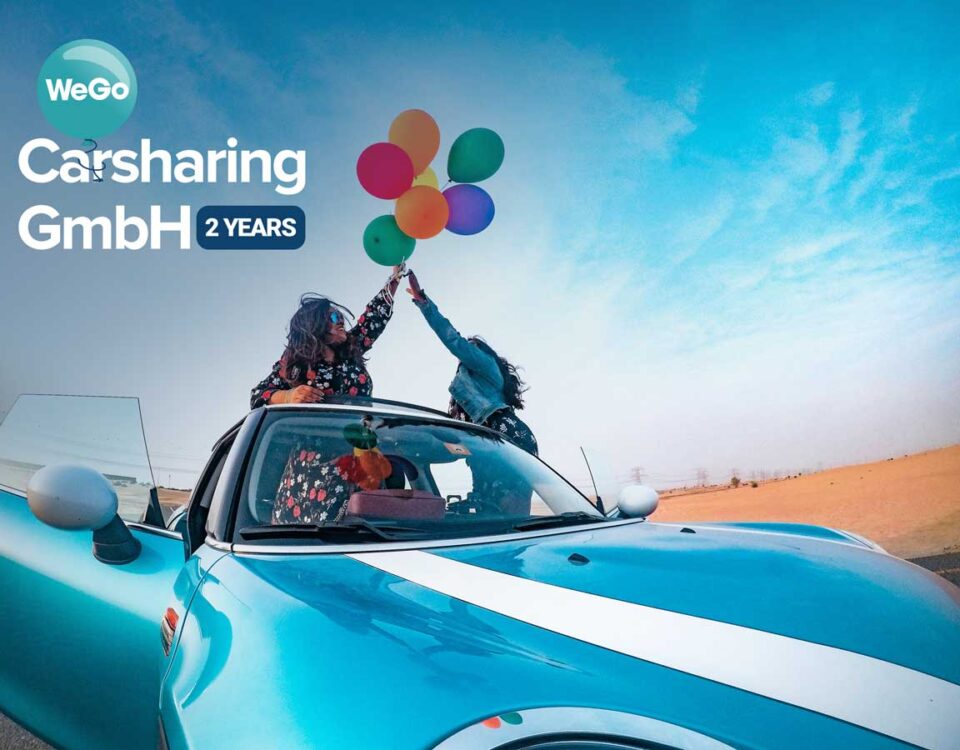- Joop Geesinkweg 901-999, 1114 AB Amsterdam, Netherlands
- +31 20 705 5187
- info@wegocarsharing.com
WeGo introduces “shared horses” as new mobility solution in the Netherlands and Germany

AMSTERDAM/KAISERSLAUTERN, 1 April 2022 – Mobility solutions provider WeGo is developing plans for the Dutch and German governments to enable “horse-sharing” in small towns and villages in both countries. The sharing horses will be provided at so-called “green mobility hubs” and will additionally complement existing mobility solutions, such as public transport, taxis and car sharing vehicles.
Sustainable mobility
Last year, WeGo was approached by a think tank of the Dutch and German Environmental Infrastructure Agency that deals with issues around sustainable mobility. The Amsterdam-based company was asked to think about how mobility in small towns and municipalities could be made more sustainable.
“We had been toying around with the idea of a horse-sharing concept for some time,” says WeGo CEO Peter de Jong. “However, to realise such a special form of mobility, you need the support and help of the government. We presented three ideas to the Environmental Infrastructure Agency. They were enthusiastic about our innovative horse-sharing idea. We are very happy that we can now develop the idea further.”
Back to basics
The German-Dutch think tank has been surveying residents and businesses about their views and needs regarding mobility for years. According to the researchers, the pandemic has changed these needs significantly: People want to go through life less hectically, “Back to basics” – having to spend less money on mobility and moving more sustainably – is the wish of many.
De Jong: “The horse as a means of transport fits these needs perfectly. Besides the environmental benefits, transport with a horse brings people closer to nature again, and offers a special experience. Moreover, right now, sharing horses are a financially attractive alternative to fuel-powered cars – especially when you consider the current fuel prices.”
Green Mobility Hubs
Local authorities in the Netherlands and Germany are planning to designate sites for the horse-sharing concept. This will mainly be implemented at existing mobility hubs, such as bus and train stations. The horses will be placed on specially created meadows, as the animal’s welfare is of course paramount.
Travellers can view in the WeGo app whether sharing horses are available and book them directly via the app. They also use the app to open the chain lock with which the animals are securely leashed to the fence. The traveller then brings the animal back to the meadow on the chain.
Pimp My Ride
The proposed plans have been enthusiastically accepted by various parties and have already been communicated internationally. The pilot project was particularly well received by the producer John Smith of the American reality show “Pimp my Ride”.
The producer contacted WeGo and offered to support the project in terms of marketing. “When I heard about the project, it was immediately clear that I wanted to support WeGo in the implementation. With the title “Pimp my Horse” I am starting a new edition of our successful programme, because I think that especially in North America “green mobility” should be promoted as well. Sustainable mobility is the mobility of the future!”, explains John Smith.
“Special attention will be paid to the equipment of the horses. A comfortable saddle for maximum comfort of the rider, with enough possibilities to carry luggage are our top priorities. Furthermore, we also want to redesign the feeding bowls and watering troughs of the sharing horses. I am convinced that the project will be a great success,” Smith continued.
The reality show has also agreed to financially support the first 20 locations in the Netherlands and Germany. The green mobility hubs should be available in the fourth quarter of this year.
Stay informed about new developments
Subscribe to our newsletter.
"*" indicates required fields






